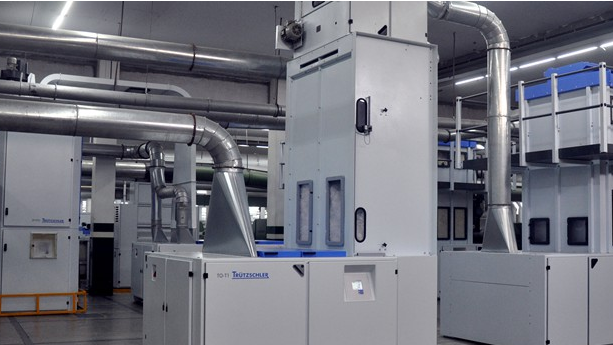Textile Sector Criticises Government’s Move On Gas Prices, Seek Package
Textile industry on Friday criticized the federal government’s decision of taking back 33 percent cut in gas prices and called for early announcement of textile package to support the industry. The industrialists have urged the government to ensure that all benefits of falling prices of oil and gas must pass on to the industrial sector specially the textile industry which is suffering the most due to the higher cost of doing business as compared to their competitors in the region.
Economic Co-ordination Committee of the Cabinet, in its meeting on December 15, decided to reverse its previous decision of 33 percent cut in the gas price. On November 25, ECC approved the reduction in gas prices for all industries by Rs 200 per million British Thermal units (mmbtu) from Rs 600 mmbtu to Rs 400 mmbtu. However, the decision was subsequently reversed on December 15 at the ECC meeting as Punjab-based industry was against this reduction.
Fawad Anwer, Managing Director, Al-Karam Textile, said that textile industry was already facing tough competition in the world market and overall textile exports witnessed a decline due to high cost of doing business, hence, in this situation ECC’s decision would directly hurt the exports. The industries of Sindh and KPK were more beneficiary of the gas price reduction but the decision was reversed at the request of CM Punjab because the industries based in Punjab were against this reduction, he added citing reports.
“We believe that government’s move will lead to huge decrease in the textile exports in the coming months,” he apprehended. Anwer said that reportedly Sindh chief minister had also intervened and wrote a letter to the federal government that gas prices should not be reduced. The previous reduction was due to revised contracts of gas fields and there was financial burden on the federal or provincial government, he said.
Fawad Anwer said that the ECC’s reversal of gas price decision also showed that federal and Sindh governments were not in favour of industrialisation in the country. “The textile package, promised by the Prime Minister Mian Muhammad Nawaz Sharif, three months back, has already been delayed and in these three months a number of textile mills have been closed down while a number of other mills are on the verge of collapse,” he said, urging the Prime Minister Nawaz Sharif to honour his pledge of Rs 170 billion textile package for exporters without any further delay.
He said that the package would help rescue the major exporting sector of the country that would also enable the industry to stand at its own feet. Talking about the increase in the cost of production, he said that with current ECC’s decision, it was being expected that cost of Sindh-based textile industries would rise by at least 4 percent and would make it further costly in the international market.
He referred that Indian government was facilitating its textile industry and recently announced to increase rebate by further 5 percent to ensure the collapse of Pakistan’s textile industry. He asked Prime Minister to intervene personally and take daring steps to save all export-oriented industries.
Jaweed Bilwani, chief co-ordinator of the Pakistan Hosiery Manufactures and Exporters Association (PHMA), has said that the ECC’s decision raised several questions on the ECC’s performance. “In current scenario, how can we say that it is an impartial forum, where all decisions are not being taken in the larger interest of economy”, he said, adding that entire LNG was already being sent to Punjab-based industry, while Sindh- based industry was facing shortfall of gas.
Bilwani proposed to the federal government to introduce a separate gas tariff for entire export-industry that should be rationalised in comparison with the cheapest rate available to the industrial consumers in the other gas-producing countries of the world, particularly in the regional countries. He said that local industry would pass on the current increase to the domestic buyers, while export-oriented textile industry could not pass on to the international buyers. Bilwani said that PM textile package was also pending and it would be useless after the collapse of the industry.

Leave a Reply
You must be logged in to post a comment.